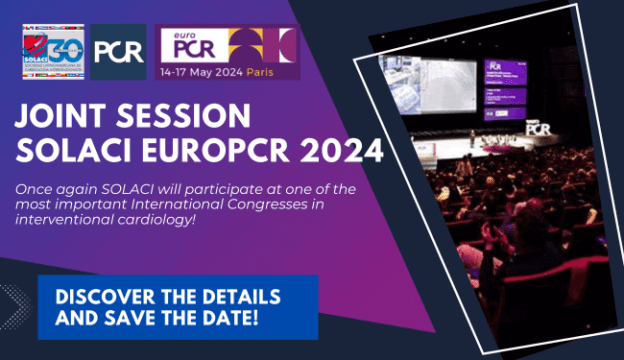Original Title: Prasugrel in Clopidogrel Nonresponders Undergoing Percutaneous Coronary Intervention (RECLOSE-3 study).
Reference: Valenti R, et al. JACC Cardiovasc Interv. 2015 Oct;8(12):1563-70.
Clopidogrel Nonresponders have higher risk of adverse events (cardiovascular death and stent thrombosis) compared to responders.
Studies published so far have failed to demonstrate the use of platelet function tests in ACS patient management.
This is the first study to show a treatment guided by platelet function testing reduces cardiovascular mortality and stent thrombosis in the era of third generation DES.
RECLOSE 3 is an intervention study that included 1550 PCI patients with DES (42% ACS, 5.3% STEMI). All patients received a 600 mg clopidogrel load prior PCI and were later evaluated with platelet aggregation tests the same day of procedure.
302 patients were classified as nonresponders (defined by a >70% residual platelet activity in the adenosine diphosphate test). This group of patients was rotated to 10mg of prasugrel a day (5 mg a day in patients older than 65 or with a history of stoke) and were retested at 6 days for platelet function, showing remarkable reduction in aggregation rates (ADP test average: 47.1 ± 16.8%). The group of nonresponders rotated to Prasugrel from RECLOSE-3 was compared to the group of nonresponders from RECLOSE-2 (where patients either received an increased dose of clopidogrel or were rotated to ticlopidine). Cardiovascular mortality was assessed at 2 years, when it showed remarkable reduction (4% vs 9.7%, p= 0.007). There was also a significant reduction of definite and/or probable stent thrombosis rate (0.7% vs 4.4%, p= 0.004).The multivariable analysis (to control potential confounders) showed an inverse correlation between the treatment with prasugrel and cardiovascular mortality (HR 0.32, p= 0.036).
There was a significant increase in minor bleeding in 3 patients (1.2%) vs 16 patients (5.3%), p = 0.009, but not in major bleeding.
Conclusion
Faced with nonresponsiveness to clopidogrel, optimal antiaggregation levels can be achieved by rotating patients to prasugrel. This strategy seems to be associated to a reduction of mortality and stent thrombosis.
Editorial Comment
This is the first study to show a benefit in terms of events using platelet function testing in clopidogrel nonresponders. Considering the higher number of events this population is exposed to, the chance to identify them and resort to an alternative strategy to improve outcomes is of utmost importance.
The RECLOSE-2 only included ACS patients; ACS patients from RECLOSE-3 were tested (42%) with similar results: 3.2% vs 9.7%, p = 0.001.
These outcomes have generated hypothesis about clopidogrel resistance as a possible new risk and the potential to reduce it in patients undergoing DES stenting.
RECLOSE-3 was sponsored by the Italian Department of Health. Its main author (Dr. David Antoniucci) has not reported any conflict of interests.
Courtesy of Dr Agustín Vecchia.
Hospital Alemán, Buenos Aires, Argentina.





